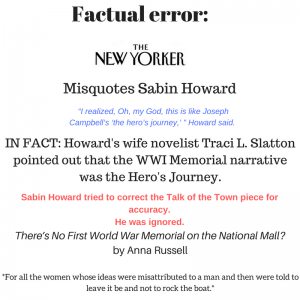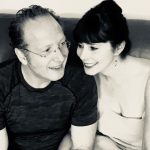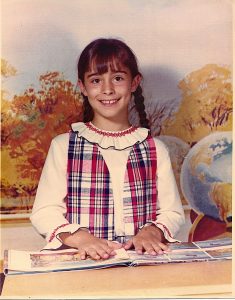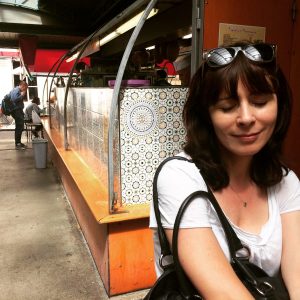Factual error in the New Yorker: I write this post not just for myself, but for all women whose ideas were misattributed to a man, and who were told to leave it be and not to rock the boat.

My husband Sabin Howard is making a national memorial, the National World War I Memorial.
He began with drawings. He drafted several iterations of a relief that would tell the story of the Great War.
One morning over breakfast, he was talking about the design and showing it to me.
“My goodness,” I said. “You’ve got Joseph Campbell’s Hero’s Journey there.”
Sabin said, “Explain that?”
So I did. As a novelist, I’ve worked with Campbell’s ideas for years. For the purposes of storytelling, the beats of the hero’s journey are useful and important. I’ve been so entranced by Campbell’s work that I’ve talked about getting a PhD in it.
And so, with my explanation over coffee and scrambled eggs, began a critical and oft-repeated piece of the story around the WWI Memorial. The Hero’s Journey connection has been publicly broadcast, by Sabin and by others associated with the Memorial, including PR people.
This is my contribution to this worthy endeavor and I’m proud of it.
Sabin is an honorable man. He consistently credits me with telling him about Joseph Campbell. He says, “My wife told me about the Hero’s Journey…” in every public venue where he’s spoken–including at a meeting of the Commission on Fine Arts in Washington DC.
In the worlds of literature and academia, claiming credit for someone else’s work is called plagiarism. Sabin is well aware of that. He is extraordinarily brilliant, but I was the one who came up with the Hero’s Journey.
The idea is to give credit where credit is due. As a matter of integrity–don’t take credit for other people’s work. Sabin doesn’t. He’s honorable.
Then came a big opportunity: The New Yorker magazine decided to do a Talk of the Town piece on Sabin and his sculpture at the New York Academy of Art.
The publicist for the NYAA was happy and excited. She had done a great job! This piece would add luster to the NYAA, to Sabin, who was showing the WWI Memorial Maquette at the NYAA, and to the Memorial itself. This was a coup!
Sabin was happy. Despite the extraordinary–unparalleled–quality of his work, he has struggled for acceptance here in the New York art world.
“A prophet is not recognized in his home town,” I tell him.
The Talk of the Town piece went live online yesterday.
It contained a factual error:
“I realized, Oh, my God, this is like Joseph Campbell’s ‘the hero’s journey,’ ” Howard said. “It’s a very simple story that everybody in every single culture has experienced.”
Sabin was out when I texted him about the error. He stepped away from a meeting to contact the publicist at the NYAA and ask for the article to be corrected for factual accuracy.
Here’s where the story gets interesting.
The NYAA publicist was less than enthusiastic about the update. She forwarded the request to the writer at The New Yorker.
Then she emailed back, “Anna…consulted with the fact-checking department on the request, and they feel since the piece doesn’t go into “how” the realization was made, it should stay as is.”
This is disingenuous. Sabin was directly misquoted and asked for his words to be represented correctly. He always says, “My wife said, “This is Joseph Campbell’s hero’s journey.”
The New Yorker‘s misquote creates a factual error in the piece.
Sabin and I continued to push for accuracy. Sabin felt it was an injustice that his words were manipulated and that he was misquoted.
The NYAA publicist responded with increasing unpleasantness. She even told Sabin, “The story wasn’t pitched to The New Yorker as a piece about you and Traci.”
I emailed her,
Adding the words, “My wife remarked…” certainly does not make it a story about me and Sabin. Three words could not do that in a piece of this length. It does, however, become factually correct. It gives the piece an integrity that it currently lacks. Whether or not the magazine is attempting to be vindictive, they are acting in a way that has become a sore point with the parties involved. The magazine has been informed of a misquote and has chosen, this far, not to correct the piece.
The publicist was so appalled that I would continue to stand up for myself and my ideas that she got the head of the New York Academy of Art to email Sabin to tell me to back down.
Is that how the NYAA chooses to behave: by attempting to bully women who are standing up for their contributions? By attempting to get an authority to squelch the quest for accuracy and integrity? Women applying to the New York Academy of Art: BEWARE!
Regarding The New Yorker, here are my questions:
Is this how fake news starts: with journalists twisting subjects’ words any way that pleases them, and being unwilling to correct their piece when told about the error?
If The New Yorker makes a mistake and doesn’t correct that error because of specious and disingenuous reasoning, how is this publication any different from the fake news outlets they descry?
It’s disappointing that a venue that lauds its own integrity isn’t showing its integrity.
And there’s one more wrinkle in this sordid story. That is, there’s a concern about vindictiveness. The NYAA publicist and the head of the NYAA wanted us to stand down for fear that we would alienate people who had “been on our side.”
The NYAA publicist wrote us,
No press will be inclined to write on Sabin again, because it appears that he goes and attacks press who cover him. In addition, “fake news” is very inflammatory language to use and the New Yorker takes accusations like that extremely seriously – they have to, because of their political journalism. Claiming that the New Yorker is publishing fake news will attract a lot of unpleasant attention to you.
It’s a craven concern, but a real one. In today’s world, with its emphasis on expedience, the press might just step away from a subject who insists that his words be accurately represented.
Sabin said to me, “The New York Academy of Art will never work with me again because of this.” In order to uphold his personal integrity, he himself has to make a personal sacrifice that directly affects his career.
And so…I write this blog post for myself, for all women whose ideas have been misattributed to a man and were told to leave it be and not to rock the boat, and–come to think about it–for all the wives who are the unsung heroes supporting their husband.














